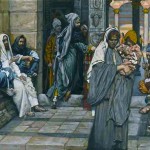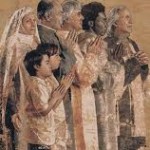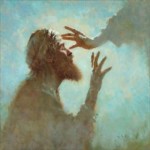Sixth Sunday in Ordinary Time – Cycle B
Reflecting on Mark 1: 40-45
In her fascinating new book on the American saints (When the Saints Came Marching In: Exploring the Frontiers of Grace in America; Liturgical Press 2015) author Kathy Coffey lingers lovingly on St. Marianne Cope, the Franciscan nun who, with six others sisters from her community in Syracuse, N.Y., warmly accepted the same invitation from the Hawaiian government which fifty other religious communities had turned down.
I am not afraid of any disease, she wrote in 1883. Hence it would be my greatest delight to minister even to the abandoned lepers of Molokai.
And so she did. She and her sisters cared for the dying St. Damien, assuring him that his work with those who had contracted the dread disease would continue after his death. She finally achieved real safety for the women and girls on the island by establishing schools and hospitals just for them. She brought games, and laughter, and fun.
The most compelling thing about her for me is how beautiful she was, and how celebrated she is in Hawaii. A visitor to Molokai is immediately greeted by a large, framed photograph of this smiling, radiant Franciscan sister. Throughout the Hawaiian Islands (where her sisters still minister) her lovely face, shrouded in the white coif and wimple of the 19th century habit, is celebrated on key chains, tins of macadamian nuts, and even beer mugs. She and her sisters are beloved, and the Hawaiians want the world to know about them.
Jesus warned the man he cured of leprosy to tell no one. Instead, he broadcast it far and wide. When the love of Christ overshadows you, even the remotest parts of the Hawaiian Islands shout for joy.
What ways have you found to reach out to modern-day lepers?





